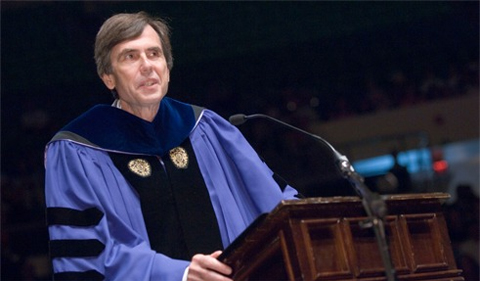Dr. Chester Pach, Associate Professor of History at Ohio University, wrote an opinion piece for a New York Times Room for Debate feature in the New York Times about the Vietnam War 40 years after its conclusion.
“Forty years ago, after a decade of war with the French, and a decade of war with Americans, communist forces swept into Saigon and ended the Vietnam War. Millions of Vietnamese and about 58,000 Americans died in the conflict. Other casualties were America’s social cohesion, self-confidence and its standing in the world,” says the Room for Debate introduction. “After years of reflection and experience, what have we learned, or what should we have learned, from the Vietnam War?”
Pach’s piece was headlined “Public Learned Less After Media Was Blamed for Failure in Vietnam.”
Vietnam led White House and Pentagon officials to the dubious conclusion that television news coverage undermined public support for the war. This led to restrictions on war reporting that changed how Americans have seen war on television since.
In Vietnam, for the first time, TV journalists provided extensive and uncensored coverage of U.S. troops in battle.
President Lyndon Johnson complained that TV coverage of the war was simplistic and sensational because reporters were uninformed, cynical or biased.
President Richard Nixon even insisted that “our worst enemy seems to be the press” and tried to deflect public discontent with the war toward the TV networks.
Television reporting of Vietnam was more balanced and informative than Johnson’s and Nixon’s caricatures. While TV news brought the war into American living rooms, there is no convincing evidence that it was the main reason for popular discontent with Johnson’s or Nixon’s policies.
Flawed military strategies, unconvincing claims about the importance of Vietnam to U.S. security, and failure to secure victory on the battlefield or at the negotiating table all explain far better why Vietnam was such an unpopular war….


















Comments